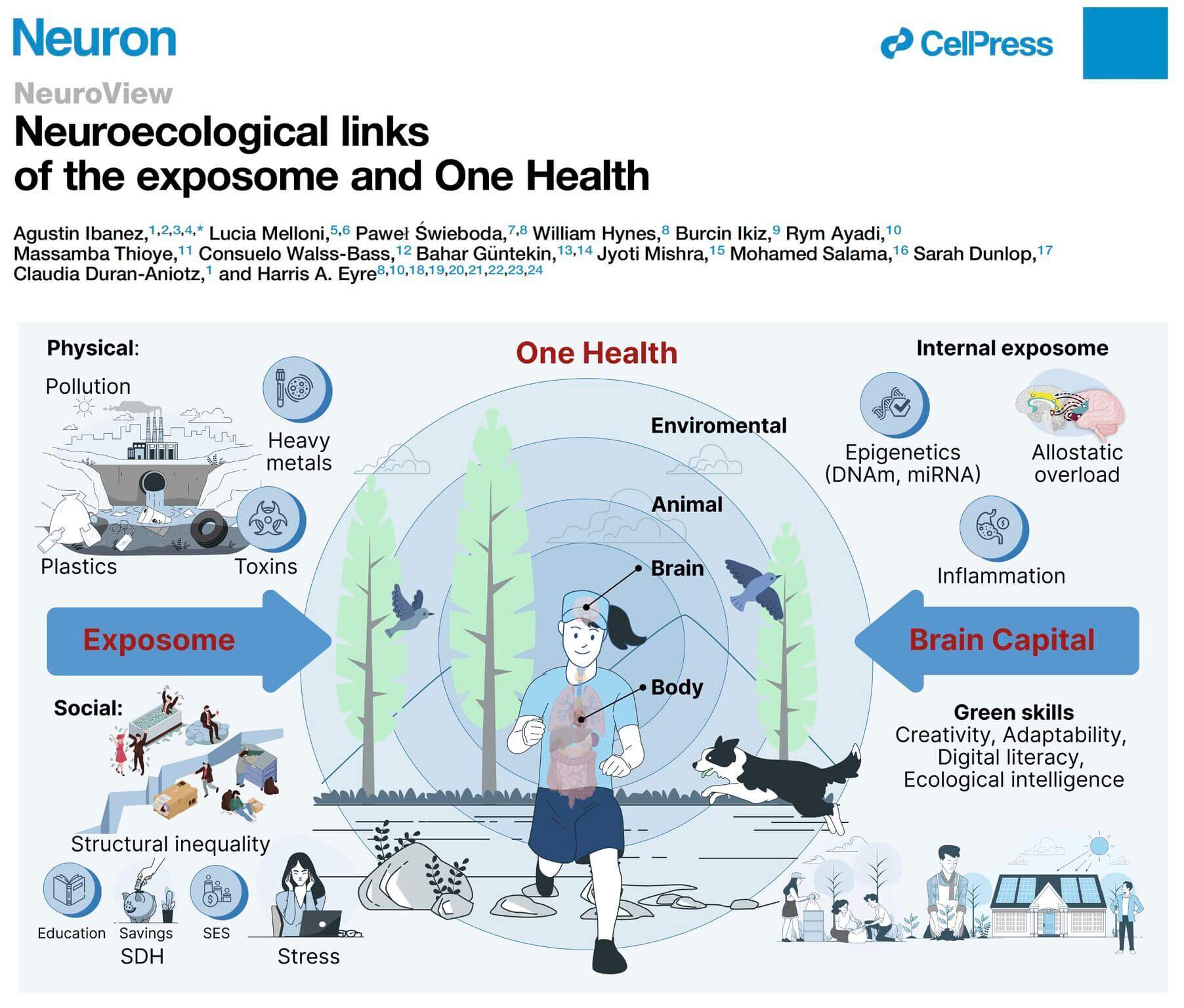Escalating environmental and social challenges underscore the imperative need to understand these challenges’ impacts on brain health and sustainability. This NeuroView examines the interplay among environmental factors of the exposome, ecological approaches to health (or One Health), and the new concept of brain capital, highlighting these elements’ joint importance in shaping the future of research and public health.
Brain capital is fundamental to understanding how humans contribute to the economy and how economic factors, in turn, shape our lives. Green skills are a set of knowledge, abilities, values, and attitudes needed to live in, develop, and support a sustainable and resource-efficient society. Creativity, ecological intelligence, and digital literacy are green skills that constitute critical mindsets for the transition to a low-carbon, resource-efficient economy.
Paper authors: Agustin Ibanez, Lucia Melloni, Paweł Świeboda, William Hynes, Burcin Ikiz, Rym Ayadi, Massamba Thioye, Consuelo Walss-Bass, Bahar Güntekin, Jyoti Mishra, Mohamed Salama, Sarah Dunlop, Claudia Duran-Aniotz, Harris A. Eyre
Neuron has established itself as one of the most influential and relied upon journals in the field of neuroscience. The editors embrace interdisciplinary strategies that integrate biophysical, cellular, developmental, and molecular approaches with a systems approach to sensory, motor, and higher-order cognitive functions. Neuron serves as one of the premier intellectual forums of the entire neuroscience community.


